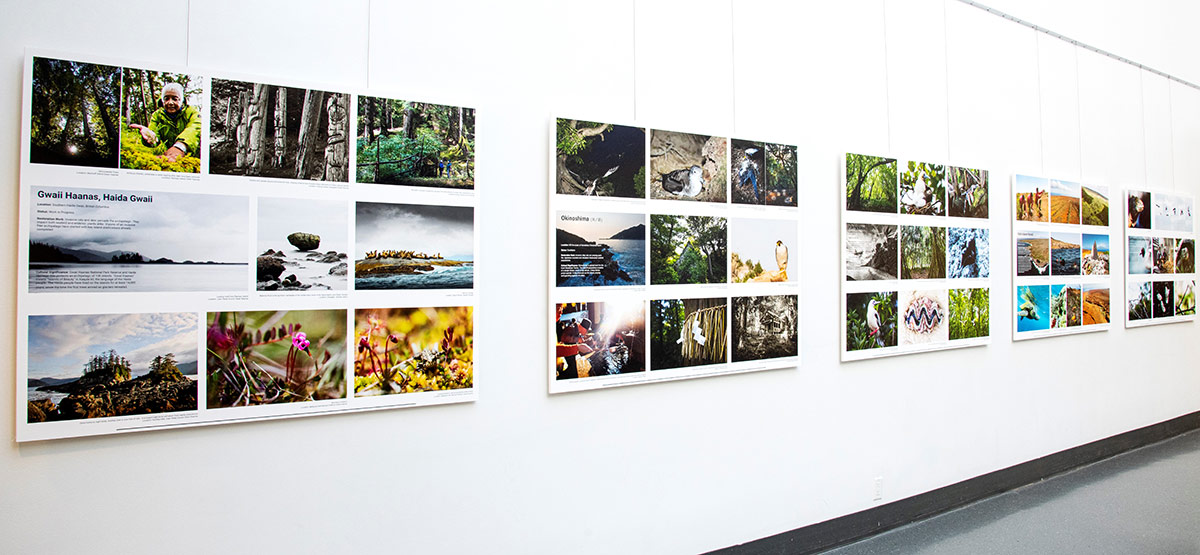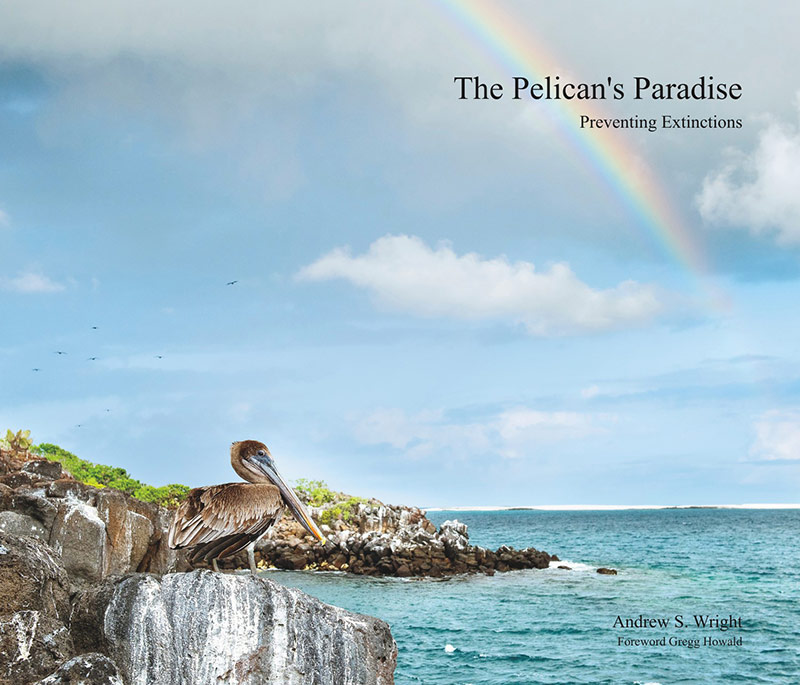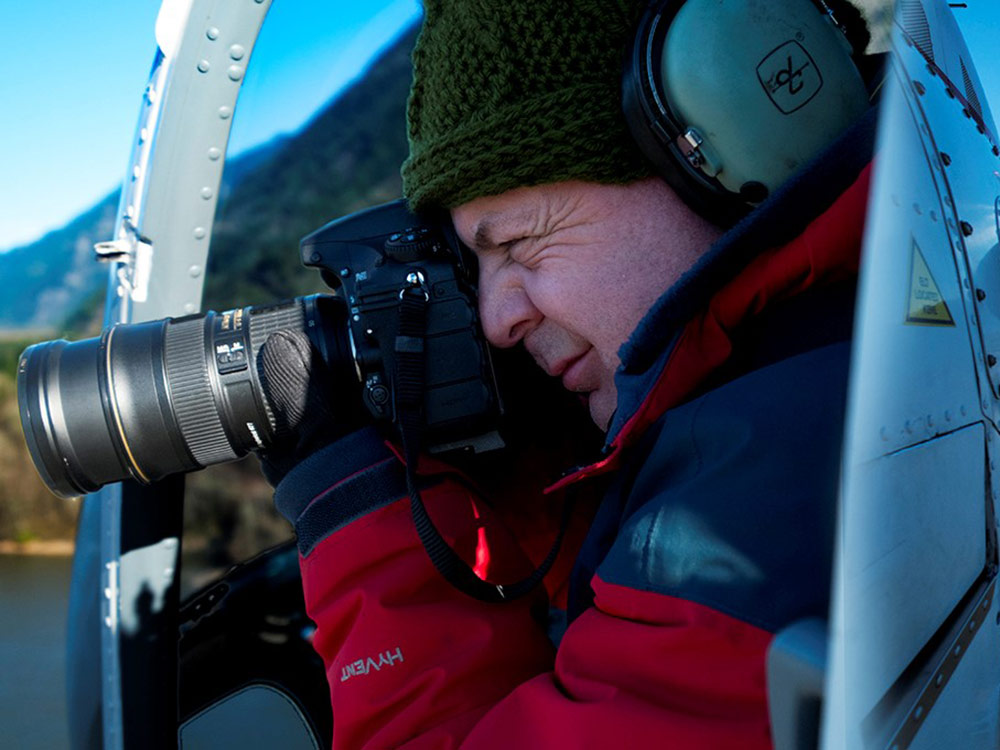Andy Wright already knew plenty about rewiring systems to get them working properly. He was, after all, an accomplished engineer before he took on his biggest troubleshooting project of all: ending extinctions.
If that sounds grandiose, bear in mind that in many small ecosystems around the world, distinct species thrive... until they are at the mercy of invasive rivals, often delivered to their worlds by humans.
For over a decade, Wright has joined his considerable abilities as a photographer and writer to the cause of Island Conservation, a non-profit that targets islands where restoring habitat and ecological balance can save species from vanishing for all time. His documented work with Island Conservation has appeared in The Tyee and elsewhere, and now is the subject of a magnificent new book called The Pelican’s Paradise and an accompanying exhibit at Science World in Vancouver.
On Thursday, Feb. 17, Wright and Island Conservation colleague Gregg Howald will join Linda Solomon Wood of the National Observer (where Wright’s work has also appeared) and me, for something we all could use right about now: an evening of good news. Details here.
Wright and Howald will tell how and where the fight against extinctions is being waged successfully, and share some of the powerful images Wright has captured on Gwaii Haanas, Canada; Okinoshima, Japan; Kaho’olawe, Hawaii; Palmyra Atoll, Northern Line Islands, South Pacific; Isla Floreana and Seymour Norte, Galapagos. “The recovery work requires determination and endurance,” says Wright, “but the outcomes are profoundly important and spectacular to experience.”
The goal sounds fairly simple: remove invasive species from fragile ecosystems to protect native biodiversity. Consider, though, what it entails to eliminate every rat flourishing on Okinoshima Island in order to save the last 30 breeding pairs of the Japanese murrelet. You may ask: What right do humans have to play gods, choosing the success of one species over another? Wright understands such ethical qualms, but says as human activity blots out biodiversity around the world, here are opportunities to restore it. A domino effect goes in both directions. Extinctions impoverish ecosystems, leading to more extinctions. But restoration of biodiversity strengthens many species at once in a network of mutual support.

As Wright wrote about his visit to Okinoshima Island in The Tyee:
“Globally, over the last 500 years, 80 per cent of all extinctions have occurred on islands as a result of the deliberate or inadvertent introduction of invasive species.
“Feral goats, cats and rats are the usual suspects. Island life is different than continental life, primarily because of a constrained number of species and the absence of pressure from predators or vegetation-grazing mammals. Consequently, islands are ill-equipped to respond to rapidly changing habitat or predation.
“Of 8,000 islands globally impacted by such invasions, an estimated 500 are amenable to rehabilitation."
Many will recognize the term Anthropocene, the name given to this era marked by a rapid decline in biodiversity caused by pollution, climate change and the spread of invasive species. Wright suggests we can turn the corner towards what he has named the Accretocene, where humans drive the growth of biodiversity growth rather than hinder it.
“It is my hope,” he says, that his book, the exhibit and Thursday night’s conversation, “whisk you to another place and leave you compelled to contribute to the creation of an Accretocene.” That should give you a sense of Andy Wright’s sense of adventure mixed with optimism about the power of conservation. He’s constantly on the lookout for the next doable project on behalf of Earth’s natural splendour.

Thursday’s event begins at 7 p.m. PST. Attendance is online only and free of charge. You can register via the National Observer.
If you’d like to visit the exhibit in person, Science World is open to the public but with limited admittance numbers. Book your visit at their website. For a virtual look, check out the exhibit here.
Wright’s hardcover book, which chronicles his five island visits to battle extinctions, can be ordered online or purchased at Science World, and all proceeds from such sales go to that institution. The Pelican’s Paradise is also available as a less expensive ebook, and Wright is donating all proceeds for its sales to be split between The Tyee and the National Observer.
Hope to see you Thursday! ![]()
Read more: Media, Science + Tech, Environment
















Tyee Commenting Guidelines
Comments that violate guidelines risk being deleted, and violations may result in a temporary or permanent user ban. Maintain the spirit of good conversation to stay in the discussion.
*Please note The Tyee is not a forum for spreading misinformation about COVID-19, denying its existence or minimizing its risk to public health.
Do:
Do not: